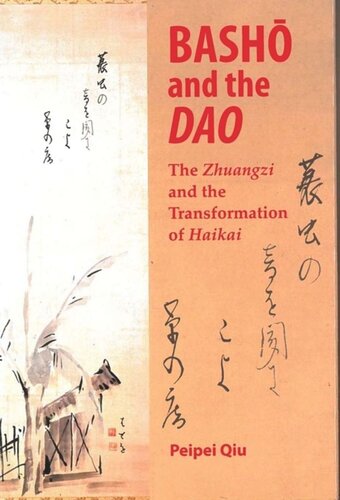

Most ebook files are in PDF format, so you can easily read them using various software such as Foxit Reader or directly on the Google Chrome browser.
Some ebook files are released by publishers in other formats such as .awz, .mobi, .epub, .fb2, etc. You may need to install specific software to read these formats on mobile/PC, such as Calibre.
Please read the tutorial at this link: https://ebookbell.com/faq
We offer FREE conversion to the popular formats you request; however, this may take some time. Therefore, right after payment, please email us, and we will try to provide the service as quickly as possible.
For some exceptional file formats or broken links (if any), please refrain from opening any disputes. Instead, email us first, and we will try to assist within a maximum of 6 hours.
EbookBell Team

4.3
8 reviewsAlthough haiku is well known throughout the world, few outside Japan are familiar with its precursor, haikai (comic linked verse). Fewer still are aware of the role played by the Chinese Daoist classics in turning haikai into a respected literary art form. Bashō and the Dao examines the haikai poets’ adaptation of Daoist classics, particularly the Zhuangzi, in the seventeenth century and the eventual transformation of haikai from frivolous verse to high poetry. The author analyzes haikai’s encounter with the Zhuangzi through its intertextual relations with the works of Bashō and other major haikai poets, and also the nature and characteristics of haikai that sustained the Zhuangzi’s relevance to haikai poetic construction. She demonstrates how the haikai poets’ interest in this Daoist work was rooted in the intersection of deconstructing and reconstructing the classical Japanese poetic tradition.
Well versed in both Chinese and Japanese scholarship, Qiu explores the significance of Daoist ideas in Bashō’s and others’ conceptions of haikai. Her method involves an extensive hermeneutic reading of haikai texts, an in-depth analysis of the connection between Chinese and Japanese poetic terminology, and a comparison of Daoist traits in both traditions. The result is a penetrating study of key ideas that have been instrumental in defining and rediscovering the poetic essence of haikai verse.
Bashō and the Dao adds to an increasingly vibrant area of academic inquiry—the complex literary and cultural relations between Japan and China in the early modern era. Researchers and students of East Asian literature, philosophy, and cultural criticism will find this book a valuable contribution to cross-cultural literary studies and comparative aesthetics.